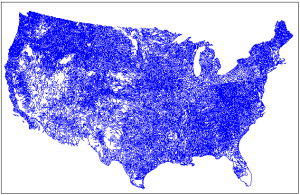Supreme Court: Jurisdictional Determinations are Subject to Immediate Judicial Review
High Court Holds That Jurisdictional Determinations are Subject to Immediate Judicial Review
On May 31, 2016, the United States Supreme Court issued its highly-anticipated ruling in United States Army Corps of Engineers v. Hawkes Co., Inc., holding that the Army Corps of Engineers’ jurisdictional determinations (“JD”) are final agency actions subject to immediate judicial review.
The Corps had taken the position that approved JDs, which indicate the presence of waters of the United States on a piece of property, are not subject to immediate judicial review. Instead, property owners would need to either 1) discharge at their own risk and appeal the JD following the initiation of civil or criminal enforcement actions, or 2) complete the permitting process and then appeal any dissatisfactory results. The Court rejected these arguments because a JD is properly considered a “final agency action” and there is no adequate alternative for challenging a JD outside of court.
First, the Court turned to a longstanding memorandum of understanding between the Corps and Environmental Protection Agency binding the federal government from taking any enforcement actions following a “negative JD” – a finding that a property does not have waters of the United States – for five years. The restrictive effect of this memorandum was strong support for a finding that a JD was a final, determinative action.
Next, the Court rejected the Corps’ proffered “alternatives” as economically and practically infeasible. Under the alternatives, property owners are unable to appeal a JD unless they first risked severe civil and criminal enforcement penalties, or are expended substantial amounts of time and money to complete the permitting process.
Several Justices also filed concurring opinions. Of note, Justices Kennedy, Thomas, and Alito expressed concern over the agencies’ contention that the memorandum of understanding was not actually binding, and the specter of governmental overreach arising from the Clean Water Act’s ambiguous language. Justice Kagan emphasized the determinative nature of the memorandum.


